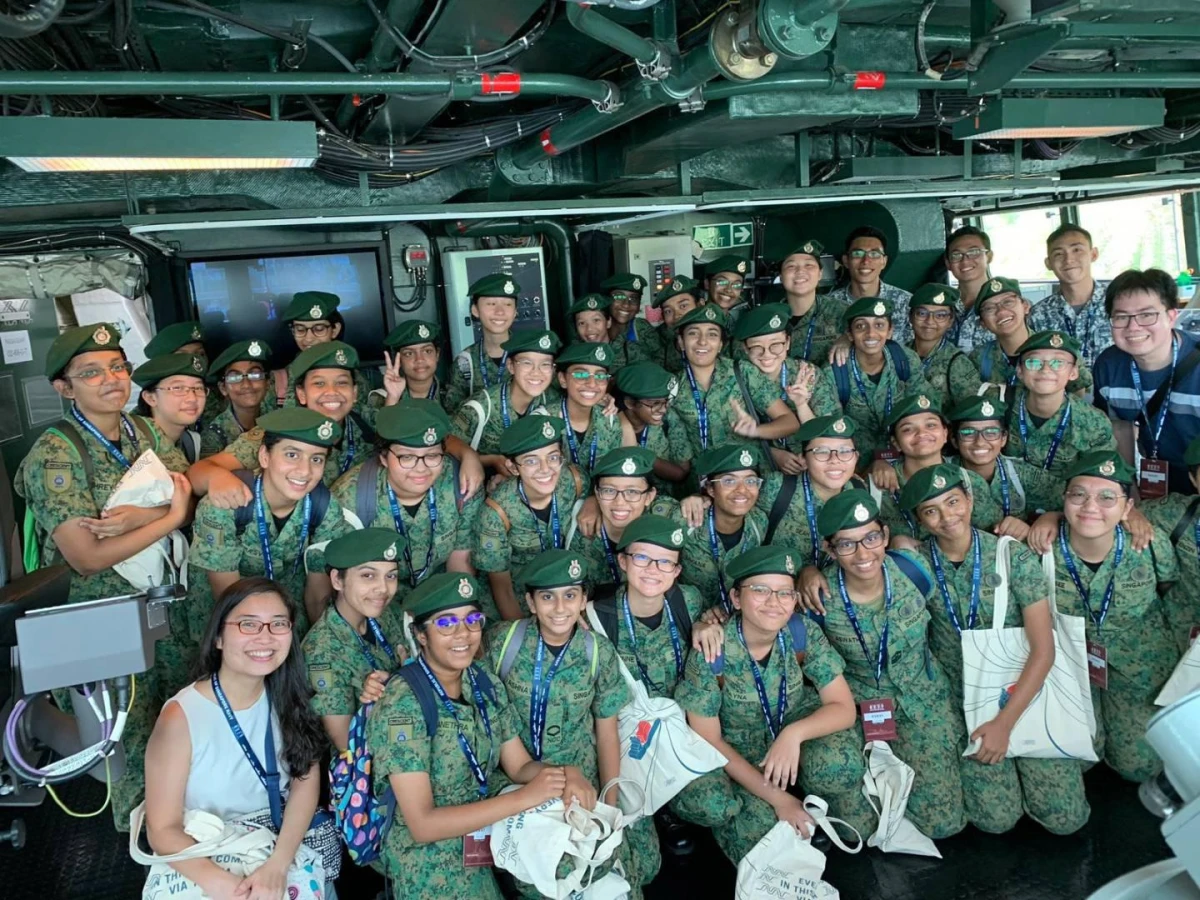
Pied piper for Gen Z: Military training
The NCC programme in Singapore provides teenagers with an opportunity to learn important life skills and develop qualities such as discipline and teamwork.
By
Azuhaar Abdul Azeez
‘Gen-Z’ is known for their careless attitude and lack of respect towards anything. Many people speak critically of today’s young generation, not understanding that the youth are moulded by the generation before them and the society they are born into.
Here are some of the social and behavioural problems in the modern day teenager:
-
Over reliance on technology: Modern teenagers spend most of their time on smartphones, computers, and other digital devices, which limits their face-to-face interactions and hinders the development of social skills.
-
Lack of real-world experiences: Many teenagers today are sheltered from the real world, and as a result, they may lack the social and emotional intelligence necessary to navigate various situations.
-
Absence of role models: With the increasing breakdown of traditional family structures and community ties, many teenagers lack positive role models to guide them in their development.
-
Overprotective parenting: Some parents today are overly protective and shelter their children from many social experiences, leading to stunted social development.
-
Diminished communication skills: With the rise of text messaging and social media, teenagers may have difficulty communicating face-to-face, which can lead to awkwardness and social anxiety.
-
Lack of empathy: In an age where social media encourages self-promotion, many teenagers may be lacking in empathy towards others, making them more selfish and self-centred.
-
Addiction to video games: Many teenagers today spend countless hours playing video games, which can have a negative impact on their social development and behavior.
-
High stress and pressure: Today's teenagers face high levels of stress and pressure, leading to anxiety, depression, and other mental health issues, which can hinder social development.
-
Lack of independence: With helicopter parenting on the rise, teenagers may lack the independence and self-sufficiency necessary to develop social skills and make decisions.
-
Social media addiction: The constant need to be connected to social media and the fear of missing out can lead to anxiety and other social problems.
National Cadet Corps
In Singapore, military training for teenagers is conducted through the National Cadet Corps (NCC) programme. The NCC is a national organisation that aims to develop character, leadership, and a sense of civic responsibility in young people through military-related training and activities.
The NCC is open to all Singaporean citizens and permanent residents aged between 13 and 19 years old. The program is divided into three levels: the Land, Sea, and Air units. Each unit provides different training experiences, with the Land unit focusing on infantry and basic military skills, the Sea unit on naval operations and water-based activities, and the Air unit on aviation-related skills and knowledge.
NCC training includes both classroom instruction and practical exercises. Cadets are taught skills such as map reading, first aid, and survival skills, as well as basic military skills such as weapon handling and drill movements. They also participate in physical training and team-building exercises.
In addition to regular training, NCC cadets are also involved in various community service projects, such as cleaning up the environment and helping the elderly. These activities aim to instil a sense of civic responsibility and develop leadership skills in the cadets.
Overall, the NCC programme in Singapore provides teenagers with an opportunity to learn important life skills and develop qualities such as discipline, teamwork, and leadership, all while serving their country and community.
Instead of designing prison units to segregate prisoners, the Singaporean model for military training can be more effective in preventive measures against the increasing detachment of the young population with their country.
Apart from instilling love for their nation, such a military program can also:
-
Build self-discipline and self-control.
-
Enhance problem-solving skills.
-
Increase physical fitness and promote healthy habits.
-
Foster teamwork and camaraderie.
-
Promote resilience and mental toughness.
-
Improve communication skills.
-
Teach leadership and decision-making skills.
-
Instill a sense of responsibility and accountability.
-
Build confidence and self-esteem.
-
Provide a structured environment that promotes a sense of purpose and direction.
-
Develop respect for authority and rules.
-
Help build a sense of community and belonging.
-
Teach conflict resolution skills.
-
Promote cultural understanding and appreciation.
-
Provide opportunities to serve others and give back to the community.
The Maldivian Coast Guard, MNDF and Police can conduct and manage many of the military camp style activities all over the country, as per the scale of this nation. Making it mandatory during secondary education also means that teenagers will find they have less time on their hands for mischief or idling. By the time they return to their lives, they will have integrity, accountability and adequate physical development to take on the world, as is deserving for a populace that is surrounded by open horizons.
It is important to note that such a policy would likely be controversial and face significant opposition, as many individuals and organizations may view mandatory military camp enrollment for teenagers as a violation of human rights and an infringement on individual freedoms.
Nonetheless, such a program could effectively address the national problems with the youth today, such as drug addiction, unemployment, gang culture and lack of recreation, and create promising patriots who will lead the nation.




